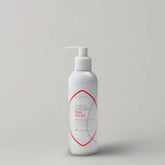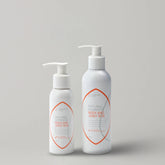What Are Anti-Inflammatory Creams?

An anti-inflammatory cream is a topical product applied to the skin to help reduce inflammation, pain, and swelling from conditions like sprains, muscle strains, or arthritis. These creams often include ingredients such as diclofenac, ibuprofen, hydrocortisone, or natural extracts like arnica, which target discomfort directly at the source with fewer whole-body side effects.
When you experience muscle soreness, joint stiffness, or swelling after a workout or long day, you’ve likely seen or used an anti-inflammatory cream. These topical products are formulated to soothe pain, reduce inflammation, and support recovery — all through direct skin application.
Whether you’re looking for a topical anti-inflammatory cream, a natural option for swelling, or simply want to understand how these creams work, this guide explores everything you need to know including types, uses, ingredients, and safety tips.
What Is an Anti-Inflammatory Cream?
An anti-inflammatory cream is a topical preparation designed to help relieve pain and reduce swelling when applied to the skin. Unlike oral medications, which circulate through the bloodstream, these creams deliver active ingredients directly to the affected area.
Common uses include:
- Joint or muscle discomfort (from overuse or minor injury)
- Swelling or inflammation after physical activity
- Mild arthritis or osteoarthritis symptoms
- General muscle recovery support
These products are available in both pharmaceutical and natural formulations, making them accessible for a wide range of users seeking non-invasive relief.
How Do Anti-Inflammatory Creams Work?
Most anti-inflammatory creams work by inhibiting the body’s natural inflammatory response particularly the enzymes that cause pain and swelling.
Here’s a simple breakdown:
- You apply the cream directly to the skin.
- The active ingredients are absorbed into the tissues beneath.
- These compounds interact with inflammatory mediators, such as prostaglandins, which play a role in pain and swelling.
- The result is localized relief, often with fewer systemic effects than oral medications.
Because absorption happens through the skin, the effect is targeted, making it especially useful for joint pain, muscle stiffness, and minor sprains.
Types of Anti-Inflammatory Creams
Anti-inflammatory creams fall into several main categories, each with distinct active ingredients and mechanisms of action.
1. Topical NSAID Creams (Diclofenac, Ibuprofen)
Topical non-steroidal anti-inflammatory drugs (NSAIDs) are among the most common types used in Australia. These include creams or gels containing diclofenac, ibuprofen, or ketoprofen.
They work by blocking COX enzymes that trigger inflammation and pain.
- Common brands may include generic diclofenac gels.
- Often used for arthritis, soft tissue injuries, and back pain.
- Known for reducing swelling and stiffness around affected joints.
Research Insight: According to Cochrane Reviews (2020), topical NSAIDs like diclofenac have been shown to provide effective relief for osteoarthritis-related pain, with fewer gastrointestinal side effects than oral forms.
2. Corticosteroid Creams (Hydrocortisone)
Corticosteroid or hydrocortisone creams are designed for skin inflammation, not deep tissue pain. They’re often recommended for eczema, dermatitis, or insect bites, helping reduce redness, itching, and irritation.
They’re mild and generally safe for short-term use but should be used under guidance, especially on sensitive skin areas.
3. Capsaicin Creams
Capsaicin, derived from chilli peppers, works differently, it blocks pain signals sent through nerves. When applied repeatedly, it may help desensitise pain receptors over time.
Commonly used for:
- Nerve discomfort (neuropathic pain)
- Knee or joint pain
- Muscle soreness
It can cause a mild warming or tingling sensation, which usually subsides with consistent use.
4. Arnica Creams (Natural Anti-Inflammatory)
Arnica montana, a traditional herbal remedy, is widely used in natural anti-inflammatory creams. It may help soothe swelling, bruising, and muscle aches through its plant-based anti-inflammatory compounds.
Many prefer arnica-based options for natural pain relief, particularly when looking to avoid synthetic ingredients.
Shop our Natural Harmony Body & Joint Rub - a natural blend that supports comfort and recovery through plant-derived actives.
5. Cooling and Herbal Balms
These creams contain menthol, camphor, or eucalyptus, which create a cooling or warming effect that distracts from discomfort.
They may not directly reduce inflammation but support comfort by improving blood flow and easing muscle tension.
Natural formulations like Pure and Natural Pain Relief Cream, often combine botanical extracts with essential oils for holistic relief.
Anti-Inflammatory Cream Uses
Anti-inflammatory creams can be part of a wellness or recovery routine for various mild conditions, including:
- Arthritis and joint stiffness – Supports mobility and comfort in knees, wrists, and hands.
- Post-exercise muscle soreness – Helps ease tightness after intense physical activity.
- Sprains or soft tissue swelling – Promotes localised comfort during recovery.
- Back or neck tension – Offers on-the-spot relief for everyday strain.
- Minor injuries or overuse – Useful for athletes or those in physical jobs.
Always read product directions carefully, and if discomfort persists, consult a qualified healthcare professional.
Do Anti-Inflammatory Creams Work?
Studies and clinical reviews suggest that topical anti-inflammatory creams can be effective for managing mild to moderate pain from localised conditions such as osteoarthritis, strains, and sprains.
They may not be as potent as oral pain relievers, but they offer targeted action with lower systemic exposure, making them a preferred choice for many people seeking relief without heavy medication.
A 2022 review in BMJ Open found topical NSAIDs to be effective for acute musculoskeletal pain, showing comparable pain reduction to oral NSAIDs with fewer side effects.
Choosing the Right Anti-Inflammatory Cream
When choosing a cream for swelling or discomfort, consider:
✅ Type of pain: Joint vs. skin irritation
✅ Sensitivity: Natural vs. medicated formulation
✅ Duration of use: Short-term vs. daily support
✅ Fragrance preference: Some natural creams have aromatic essential oils
If you prefer gentle, plant-based options, Florentine Gold’s natural range offers carefully formulated creams using botanical actives to support relief without synthetic additives.
Explore the full Pain Product Range for natural alternatives that may support inflammation and recovery.
Safety and Considerations
While topical anti-inflammatories are generally considered safe for most adults, it’s important to use them correctly:
- Apply only to intact skin (avoid wounds or rashes).
- Wash hands after application.
- Avoid prolonged or excessive use.
- Consult your GP or pharmacist before combining with oral medications.
If you’re pregnant, breastfeeding, or considering use on children, always seek professional advice first.
Can You Combine Creams and Tablets?
You can use both topical and oral anti-inflammatory medications, but it’s important to check with a healthcare professional. Combining them may increase the total amount of active ingredients absorbed, which could lead to unwanted side effects if not monitored.
Are Topical Anti-Inflammatories Safe for Kids?
Topical anti-inflammatory creams are not generally recommended for children unless advised by a doctor or pharmacist. Children’s skin absorbs substances differently, so professional guidance ensures the safest and most appropriate use.
Can You Use Anti-Inflammatory Cream When Pregnant?
Some topical creams may not be suitable during pregnancy especially those containing NSAIDs like diclofenac or ibuprofen.
Natural alternatives with herbal ingredients may be gentler options, but you should always consult your healthcare provider before use.
What Is a Good Anti-Inflammatory Cream?
The “best” anti-inflammatory cream depends on your needs and preferences:
- For arthritis or joint pain → Topical NSAIDs (e.g., diclofenac).
- For skin irritation → Hydrocortisone or aloe-based formulas.
- For natural everyday comfort → Natural Harmony Body & Joint Rub or Pure and Natural Pain Relief Cream.
These natural formulations are non-greasy, fast-absorbing, and designed to support mobility and comfort through botanicals rather than synthetic compounds.

FAQs
Is arnica cream an anti-inflammatory?
Yes, arnica is a natural anti-inflammatory herb often used in creams to help with bruising, swelling, and muscle discomfort.
Are topical anti-inflammatory creams effective?
They can be effective for targeted, mild-to-moderate pain relief with fewer systemic side effects than oral options.
Can you use anti-inflammatory cream and tablets together?
Sometimes, yes, but always under healthcare guidance to avoid overexposure.
Final Thoughts
Anti-inflammatory creams offer a convenient, targeted way to support relief from everyday muscle and joint discomfort. Whether you prefer scientifically formulated topical NSAIDs or natural botanical blends, the key is choosing what suits your body and lifestyle best.
For those seeking a natural approach, Florentine Gold’s range of plant-based creams are formulated in Australia with high-quality, skin-friendly ingredients that support comfort, movement, and recovery.
Shop our natural creams today and discover how nature’s ingredients can support your body’s balance and wellbeing.
Disclaimer: At Florentine Gold, we’re all about natural wellness and love sharing tips, stories, and insights we’ve picked up along the way. That said, everything you read in this blog is for general information and educational purposes only. It’s not medical advice and isn’t intended to diagnose, treat, cure, or prevent any condition. If you’re dealing with a health issue or taking medication, we always recommend checking in with your healthcare provider as part of your wellness journey.








